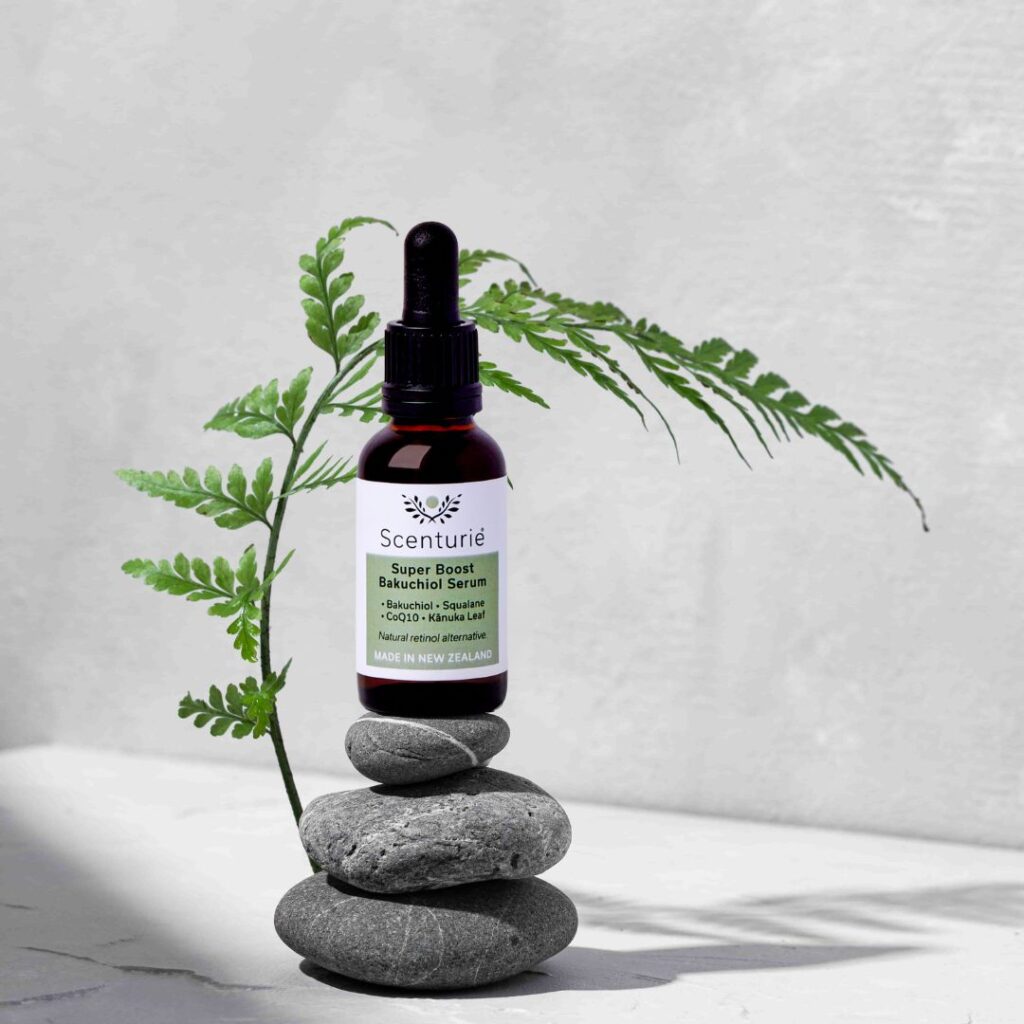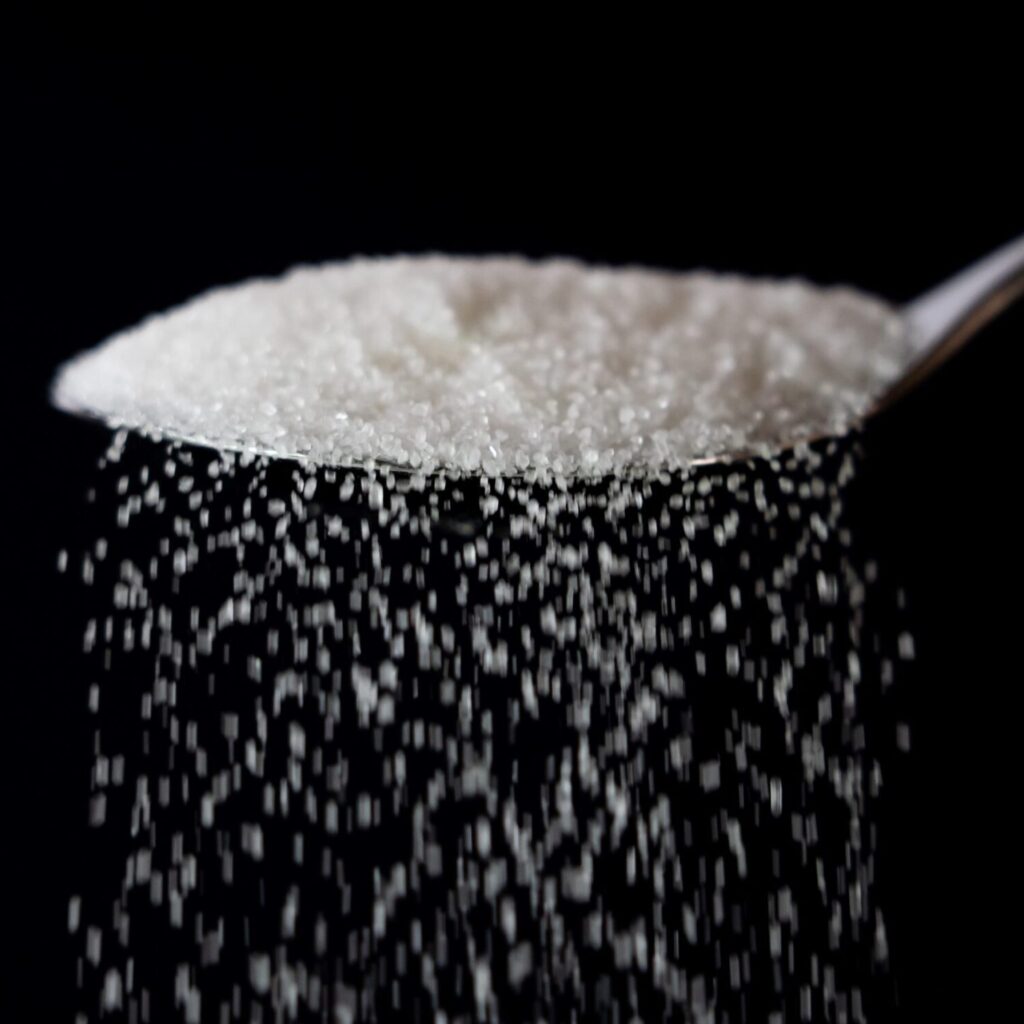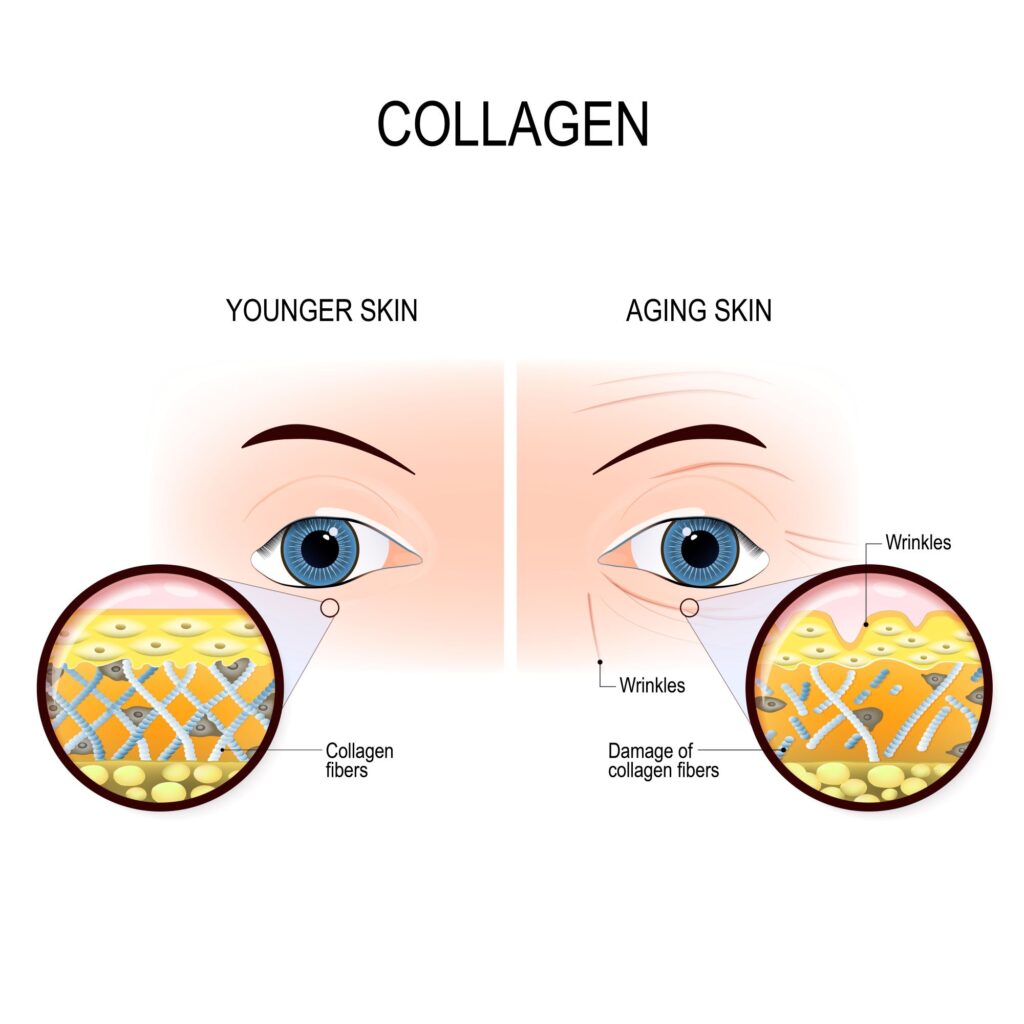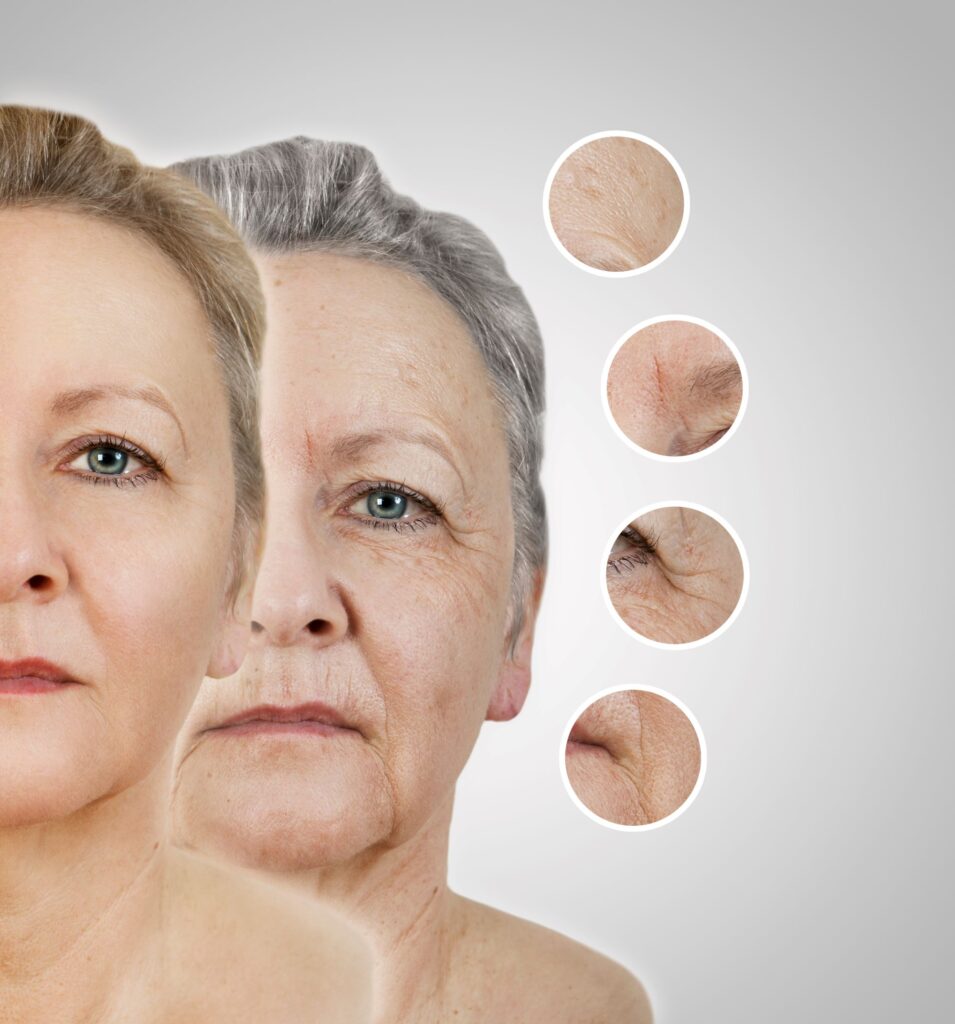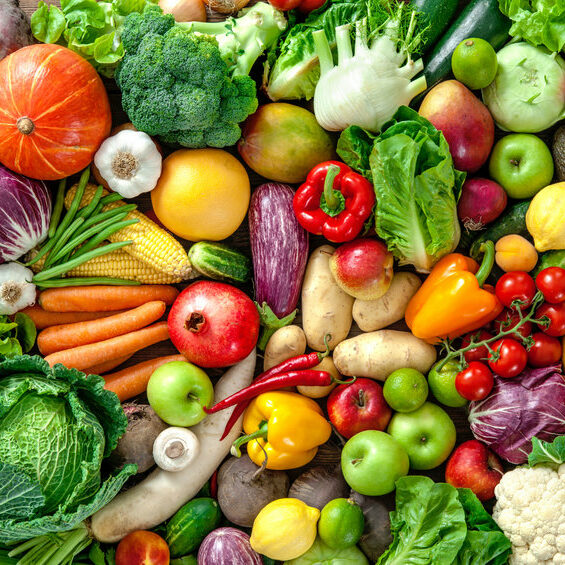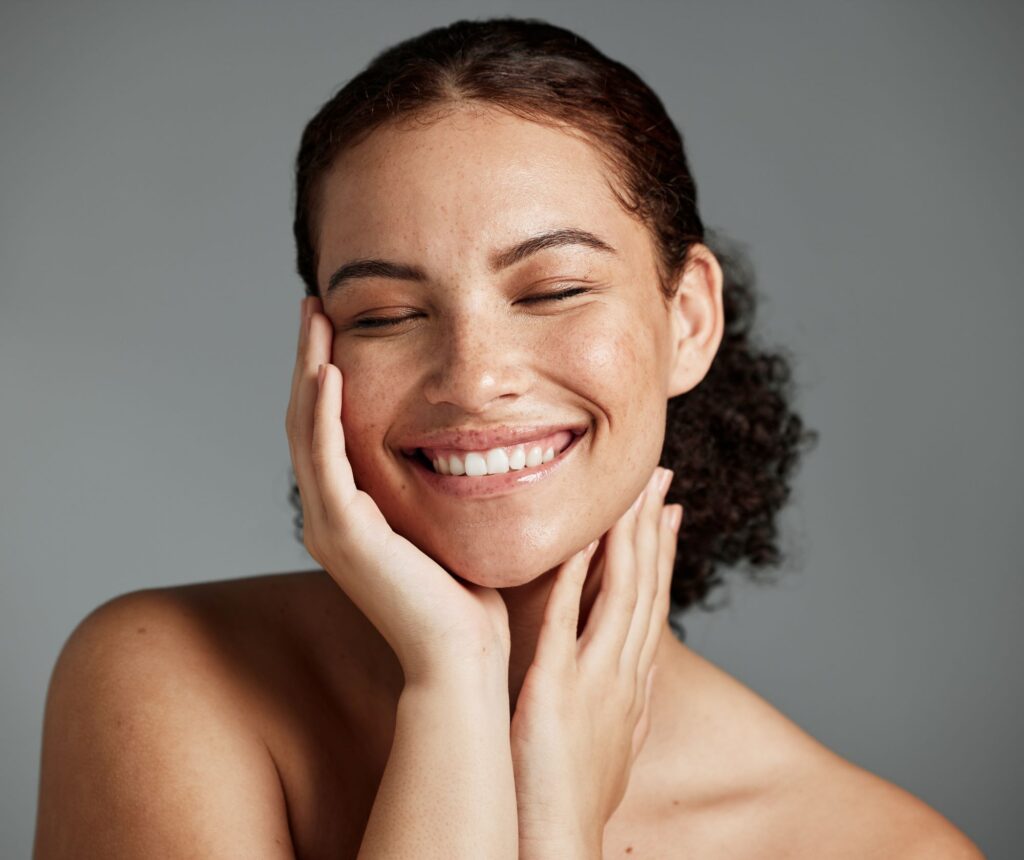Bakuchiol: The New Natural Retinol Your Skin Needs
The Rise of Bakuchiol in Anti-Ageing Skincare
Bakuchiol (pronounced buh-koo-chee-all), a natural powerhouse derived from the Babchi plant, is making waves in the skincare industry. Touted as “retinol’s gentle sister,” this plant-based active offers a compelling alternative to retinol, delivering powerful anti-ageing benefits without the irritation.
While ageing is a natural and beautiful part of life, many of us seek to address concerns like wrinkles, fine lines, and uneven pigmentation. Bakuchiol steps in as a gentler, natural solution to promote healthier, more youthful-looking skin.
What is Bakuchiol & How Does It Work?
Bakuchiol, extracted from the seeds of the Babchi plant (Psoralea corylifolia), has been used in traditional medicine for centuries. It’s a potent antioxidant with anti-inflammatory and antibacterial properties that soothe and heal the skin.
Similar to retinol, Bakuchiol stimulates collagen production and accelerates skin cell turnover, leading to:
- Reduced fine lines and wrinkles
- Improved skin texture and firmness
- Reduced hyperpigmentation and uneven skin tone
- Regulated oil production and minimised pores
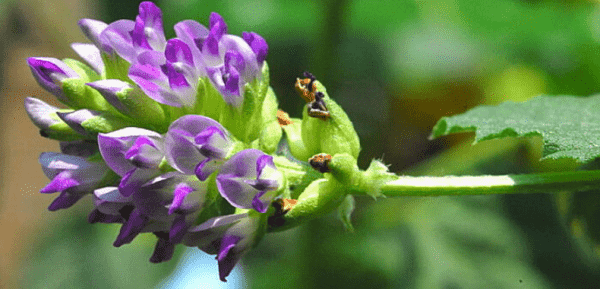
Bakuchiol vs. Retinol: Why Choose Bakuchiol?
Retinol, while effective, can cause significant irritation, redness, and flaking, especially for sensitive skin. It also increases sun sensitivity and is not recommended for pregnant or breastfeeding women.
Bakuchiol, on the other hand, is:
- Gentle on Sensitive Skin: Well-tolerated even by those with sensitive skin.
- Suitable for Acne-Prone Skin: Antibacterial and anti-inflammatory properties help combat acne.
- Can be Used Day & Night: Unlike retinol, bakuchiol doesn’t cause sun sensitivity.
- Vegan & Cruelty-Free: Derived from plants and not tested on animals.
- Compatible with Other Actives: Can be safely used with other skincare ingredients.
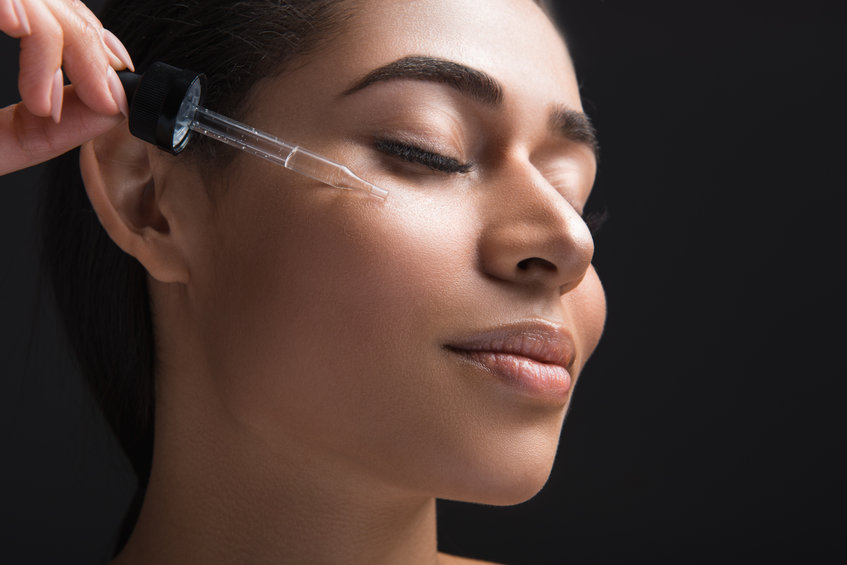
Bakuchiol vs Retinol
Bakuchiol
- Natural plant-based alternative to retinol.
- Plumps and hydrates skin.
- Reduces the appearance of fine lines, wrinkles, and hyperpigmentation.
- Improves skin elasticity and firmness.
- Boosts collagen production.
- Smooths and evens skin tone and texture.
- Skin looks radiant and glowing.
- Considered safe for sensitive skin.
- Safe to use morning and night and during sun exposure.
- Safe to use with other active ingredients.
- Vegan and cruelty-free.
Retinol
- Synthetic Vitamin A derivative.
- Plumps and hydrates skin.
- Reduces the appearance of fine lines, wrinkles, and hyperpigmentation.
- Improves skin elasticity and firmness.
- Boosts collagen production.
- Smooths and evens skin tone and texture.
- Skin looks radiant and glowing.
- May cause irritation, redness, and a burning sensation.
- Not safe to use during sun exposure, only use at night.
- Can cause skin irritation when used with other skincare actives.
- Often produced from animal products, and may be tested on animals.
Scientifically Proven Results
Clinical studies have shown Bakuchiol to be as effective as retinol in reducing wrinkles and hyperpigmentation, but without the irritation.
A 2022 comprehensive review of topical bakuchiol for the treatment of photoaging concluded that topical bakuchiol can act as a functional analog of retinol and has additional antioxidant properties that are enhanced when formulated with other antioxidants. It demonstrates clinically significant similarity to topical retinol in efficacy and superiority in tolerability and safety. It mentions that topical bakuchiol may be considered as a key ingredient in skincare formulations for individuals who have sensitive skin who may not tolerate topical retinoids and those who are seeking natural antioxidant products.
A 2021 study published in The Journal of Drugs in Dermatology studied participants with sensitive skin who used a bakuchiol-containing product for four weeks. The results showcased significant improvements in skin smoothness, clarity, radiance, and overall appearance, with no adverse reactions.
A 2019 study published in the esteemed British Journal of Dermatology further solidified bakuchiol’s position as a natural retinol alternative. This randomised, double-blind trial compared the effectiveness of bakuchiol 0.5% cream and retinol 0.5% cream in 44 participants over 12 weeks. The results were remarkable: both bakuchiol and retinol significantly reduced wrinkle surface area and hyperpigmentation, showcasing no statistical difference in their efficacy. However, the retinol group reported more side effects like skin scaling and stinging.
The Verdict: Bakuchiol Delivers!
These studies underscore bakuchiol’s potential as a more gentle, yet equally potent, anti-ageing ingredient. Bakuchiol tackles fine lines, wrinkles, and uneven skin tone just as effectively as retinol, but without the common downsides of irritation and sensitivity.
Key Takeaways
- Bakuchiol = Retinol in Efficacy: Bakuchiol delivers comparable anti-aging results to retinol.
- More Gentle on Skin: Bakuchiol is significantly less irritating than retinol, making it suitable even for sensitive skin.
- Science-Backed: This clinical study provides robust evidence supporting bakuchiol’s effectiveness and tolerability.
Embrace Bakuchiol: The Natural Choice for Youthful Skin
If you’re seeking a natural, plant-based alternative to retinol that delivers real results without compromise, bakuchiol is the answer. It’s time to experience the power of this gentle yet potent ingredient and unlock your skin’s natural radiance.

Scenturie’s Super Boost Bakuchiol Serum
“Liquid Gold”
Experience the benefits of bakuchiol with Scenturie’s award-winning Super Boost Bakuchiol Serum. Described as “Liquid Gold”, this powerhouse formulation features 1% pure Bakuchiol, along with nine highly concentrated nutrient oils to rejuvenate, smooth fine lines and wrinkles, and restore a healthy, radiant complexion.
The deeply nourishing properties of organic Argan oil, Cacay Seed Oil, and NZ Hemp Seed Oil leave skin revitalised and replenished with intense hydration for a radiant, youthful glow.
How to Incorporate Bakuchiol into Your Routine
- Cleanse and Tone: Begin with clean, toned skin.
- Apply Serum: Apply 4-6 drops of bakuchiol serum to the face, neck, and décolletage.
- Follow Up: Follow with Scenturie’s Nourishing Natural Day Cream and an SPF for daytime use, or our Ultra-Rich Natural Night Cream, in the evening.
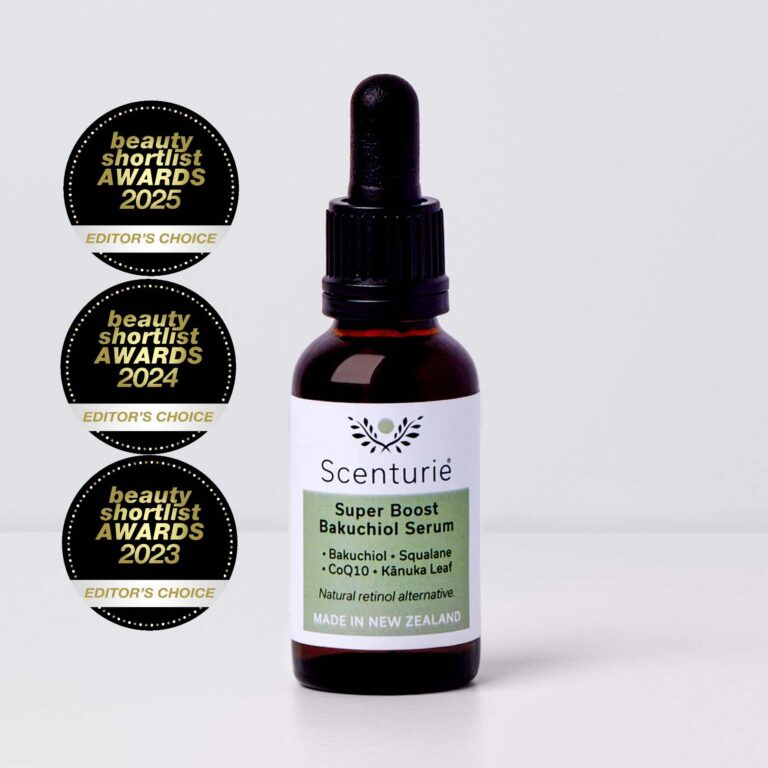
Learn more about how best to care for ageing skin HERE.
Bakuchiol: The New Natural Retinol Your Skin Needs Read More »

